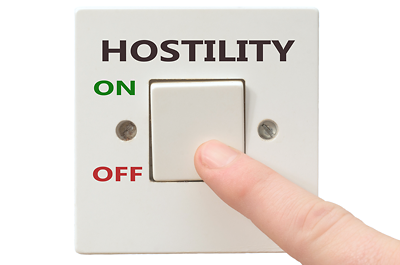How to Handle the Hostile Patient When Medication Is Indicated
Abstract
Recent studies have reiterated the efficacy of second-generation antipsychotics over other pharmacological agents, though psychosocial measures to establish a positive relationship are critical.
Helping a patient with schizophrenia necessitates the management of a diverse set of positive, negative, and cognitive symptoms.

Atypical antipsychotics and a strong relationship with patients and their families are both critical for lowering hostility in people with schizophrenia.
One positive symptom that poses a major challenge during treatment is hostility—a broad term that includes such behaviors as irritation, resentment, and aggression.
“Health professionals who treat schizophrenia patients may have difficulty dealing with their attitude toward the patient if that patient is hostile,” Jan Volavka, M.D., Ph.D., a professor emeritus of psychiatry at the New York University School of Medicine, explained.
A recent study by Volavka and colleagues found that the more hostile patients are when they begin treatment, the more likely they are to discontinue treatment after a couple of months. The findings were published in the January 2016 issue of European Psychiatry.
Although previous studies, including one by Volavka’s team, have shown an association between a poor patient-physician relationship and treatment nonadherence, Volkava said that the new work provides the first predictive evidence in a large sample. By combining available data from two large schizophrenia studies—the Clinical Antipsychotic Trials of Intervention Effectiveness (CATIE) and the European First Episode Schizophrenia Trial (EUFEST)—Volavka and his team were able to analyze over 1,100 patients.
The researchers found that greater hostility was associated with earlier treatment discontinuation (defined as patients stopping or changing medication for any cause) over a six-month period—though this distinction did not emerge right away. Patient adherence was fairly similar during the first two months regardless of hostility levels, but then diverged rapidly afterward, such that after six months around 30 percent of patients with low hostility ratings had discontinued treatment, compared with 60 percent of patients with high hostility ratings.
“Several factors contribute to nonadherence, including effects related to medication, but patient attitude is very important,” Volavka told Psychiatric News. “[Hostility] is a modifiable factor; something can be done about it.”
That’s where antipsychotics may be a treatment option—specifically second-generation, or atypical, antipsychotics, Volavka said.
As part of the CATIE trial, Volavka and colleagues assessed patients with schizophrenia who displayed at least some level of hostility at baseline who were randomly assigned to receive olanzapine (7.5 mg to 30 mg a day), perphenazine (8 mg to 32 mg a day), quetiapine (200 mg to 800 mg a day), risperidone (1.5 mg to 6.0 mg a day), or ziprasidone (40 mg to 160 mg a day) for up to 18 months. The researchers found that those who took atypical antipsychotics—especially olanzapine—displayed fewer hostile behaviors than first-generation typical antipsychotics (according to the Positive and Negative Syndrome Scale hostility item).
More recently, a research consortium in France compared aggressiveness scores of 331 patients with schizophrenia or schizoaffective disorder who were taking first- or second-generation antipsychotics.
As reported in Psychopharmacology, patients who had taken second-generation antipsychotics had lower aggressiveness scores on the Buss-Perry Aggression Questionnaire than patients who were taking first-generation antipsychotics. Patients who were taking benzodiazepines in addition to antipsychotics had higher aggression scores than patients who had not taken any, regardless of their antipsychotic medication or dose.
Guillame Fond, M.D., Ph.D., an associate professor of psychiatry at the University of Paris-Est, who led this effort, noted that the benzodiazepine results could be influenced by the fact that the more aggressive patients in the study sample were the ones prescribed adjunct benzodiazepines in the first place, so it may not indicate that these drugs necessarily make aggression worse.
“However, the data show that benzodiazepines do not have a positive effect, and given their strong side effects, we would not recommend any long-term use of these drugs,” he said.
Similarly, Volavka cautioned against prescribing antiepileptics such as valproate to patients who demonstrate hostile behaviors. “These medications have been widely used as it’s believed they can help with aggression that is seen as impulsive,” but there is little evidence of their effectiveness, he said.
Even though multiple studies have shown the efficacy of atypical antipsychotics for managing hostility, Volavka stressed that the medications should not be the sole method of lowering hostility in patients.
“Medication needs to be combined with a psychological approach to help build that therapeutic relationship, with both the patient and their family,” he said. “This is especially true in first-episode psychosis, when patients are very confused about their state and need a positive environment.”
Volakva’s study was funded by the National Institute of Mental Health. Fond’s study was funded by Assistance Publique des Hôpitaux de Paris, Fondation Fondamental (RTRS Santé Mentale), the Investissements d’Avenir program, and INSERM (Institut National de la Santé et de la Recherche Médicale). ■



